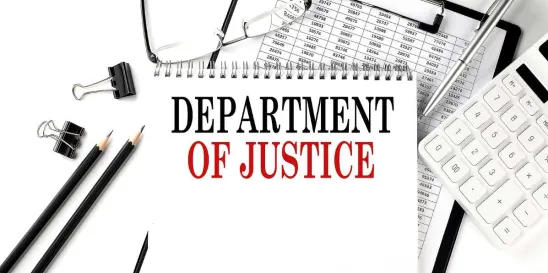The Department of Justice (DOJ) has increased focus on corporate criminal enforcement. Earlier this year, the DOJ announced a corporate voluntary disclosure policy designed to create uniform standards for companies to timely disclose misconduct. A new DOJ policy announced recently targets mergers and acquisitions (M&A) specifically.
On Oct. 4, Deputy Attorney General Lisa Monaco outlined a new M&A safe harbor policy designed to encourage acquiring companies to voluntarily self-disclose misconduct discovered during the acquisition process. Under the M&A safe harbor, the DOJ will presumptively decline to prosecute acquiring companies that “promptly and voluntarily self-disclose criminal misconduct”; cooperate with the ensuing investigation by the DOJ; and “engage in requisite, timely and appropriate remediation, restitution, and disgorgement.”
Importantly, this policy only applies in the criminal context and does not encompass the DOJ’s civil enforcement efforts. It also does not apply to misconduct that is already public or about which the DOJ already has knowledge (through a sealed qui tam complaint or otherwise).
To avail itself of the M&A safe harbor, the acquiring company must: 1) timely disclose the criminal misconduct within six months from the closing date (regardless of when the misconduct was discovered, i.e., pre- or post-acquisition), 2) “fully remediate” the misconduct within one year from closing, and 3) fully cooperate with any DOJ investigation.
Acquired entities, too, may benefit from making a voluntary self-disclosure and may also qualify for a declination, unless aggravating factors exist. Aggravating factors include (but are not limited to) criminal conduct that jeopardizes national security, public health, or the environment; is systemic; and/or involves the company’s current executives and leadership.
Monaco emphasized the importance of “timely compliance-related due diligence and integration” throughout the deal process. These presumptive deadlines are subject to a reasonableness analysis and may be extended by the DOJ depending on the facts, circumstances and complexity of a particular transaction, she said. Monaco also noted that these timelines may be accelerated if the criminal misconduct in question “threaten[s] national security” or “involv[es] ongoing or imminent harm.”
An acquiring company that fails to self-disclose criminal misconduct discovered during the acquisition process opens itself up to full successor liability for that misconduct. Given the DOJ’s new M&A safe harbor policy, acquiring and acquired companies should ensure there is a heavy emphasis on compliance during the due diligence process and a complete understanding the risks and benefits of a voluntary self-disclosure if criminal misconduct is uncovered during the due diligence process or otherwise.





 />i
/>i

